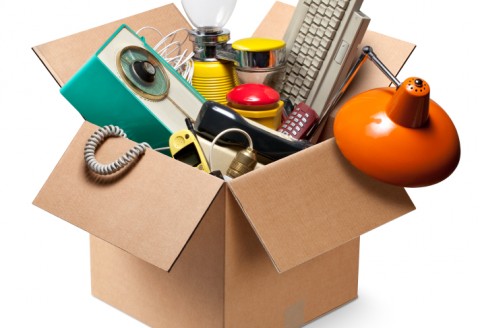Home Improvement
What Happens To My Waste Once It Is Collected?

Over the past decade households in the UK have woken up to the fact that we need to recycle more of our household waste. Impressively, it is estimated that we now do so to the tune of somewhere around 50%, which means only half of the rubbish we throw away ends up in landfills. Whilst there surely more progress to be made, recycling is a relative success story in the UK.
Previously, the story was simple; once a week or so families would take their rubbish bins or bin liners out onto the street for collection, the dustbin lorry would trundle around and the waste would be carted off to landfill. Nowadays, it is a little more exciting with different coloured bins, numerous lorries and several rounds of sorting and waste processing.

So what does exactly happen to waste once it has been collected?
The answer is a little involved and will often depend on who exactly collected your waste. There are both private and local authority run collection services (make a search for ‘rubbish clearance London ’ and you’ll soon find out) who each use slightly different albeit similar methods of sorting and disposing of waste material.
First of all, let us deal with the waste that is not sent immediately to recycling plants. Whilst some of this waste will reach landfill, where it will be left to decompose, a significant proportion is sent to be incinerated. Whilst this sounds like it might be terrible for the environment, the energy created by burning the waste is actually captured and used to generate electricity, which is then supplied to the national grid. These incineration plans run at roughly 25% efficiency and so are far from perfect, yet is preferable to simply allowing waste to sit and decompose on a landfill site.
Dry recyclable items, which have been disposed of in the correct recyclable bags or bins, are taken off to a processing plant usually somewhere on the outskirts of your town or city. Here a huge sorting operation takes place to separate the different types of waste, ready for recycling. Usually, the bags are split open or loose items tipped out onto a conveyor belt which runs through a number of processing stations.
The first station is usually a manual pre-sort area, where workers pull out any items that cannot be recycled. These will be diverted back towards landfill or for incineration. This prevents any damage being done to the recycling machines or any unwanted items ending up in processing stations further down the line.
Following the first station is usually an automatic metal sorting station, which involves the items passing under a set of magnets and other mechanisms that are used to retrieve metallic waste. Aluminium cans, whilst not strictly magnetic, will also be retrieved in this stage. Any empty tins will be retrieved and sent to steelworks, where they can be melted down and used in an entire range of new products. In fact, steel is the most recycled material in the world; some of which comes from household waste.
Another station will retrieve paper and card, which can be recycled into newspapers, tissues, cardboard and packaging. These items are sent off to paper mills for processing, where they will be reduced to mulch and entered back into the manufacturing cycle.
Plastics, one of the most widely recycled materials in the world, will be retrieved and send off to another processing plant for re-use. Plastic bottles, food packaging and cartons are all retrieved at this stage.
Once the items have been processed and recycled they have come full circle around the product life cycle. Very soon they find themselves back on the shelves of shops, in cars or motorbikes or in all manner of different applications.
Finally, food waste and garden waste is processed in a slightly different manner. This waste is collected together and transported to sites out of the city for shredding and preparation for composting. The waste is placed into huge containers, where it is left for around 12 weeks to decompose and become compost. From here it can be sold to garden centres and trade.
-

 Tech11 years ago
Tech11 years agoCreating An e-Commerce Website
-

 Tech11 years ago
Tech11 years agoDesign Template Guidelines For Mobile Apps
-

 Business6 years ago
Business6 years agoWhat Is AdsSupply? A Comprehensive Review
-

 Business10 years ago
Business10 years agoThe Key Types Of Brochure Printing Services
-

 Tech8 years ago
Tech8 years agoWhen To Send Your Bulk Messages?
-

 Tech5 years ago
Tech5 years ago5 Link Building Strategies You Can Apply For Local SEO
-

 Law5 years ago
Law5 years agoHow Can A Divorce Lawyer Help You Get Through Divorce?
-

 Home Improvement6 years ago
Home Improvement6 years agoHоw tо Kеер Antѕ Out оf Yоur Kitсhеn































